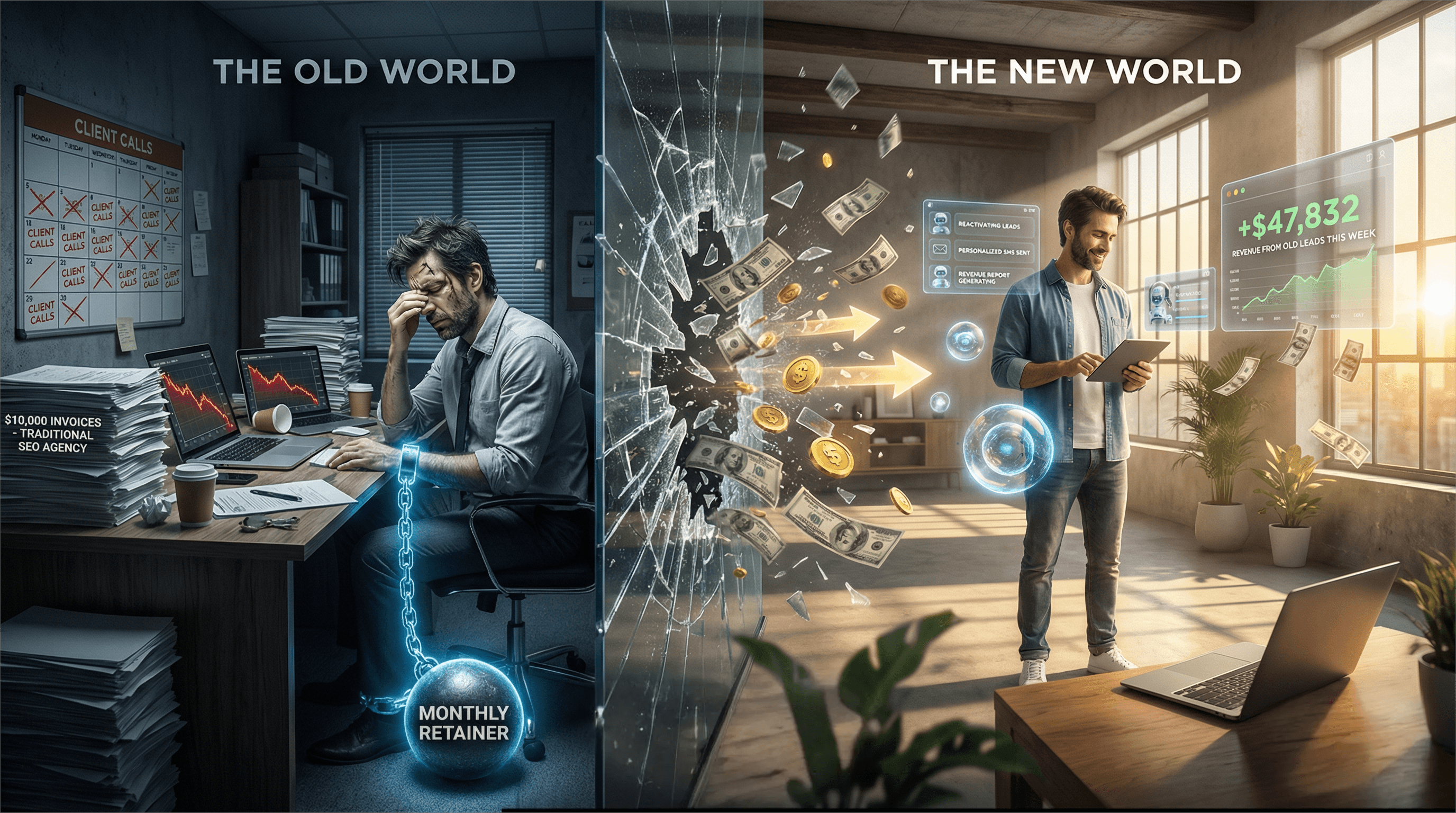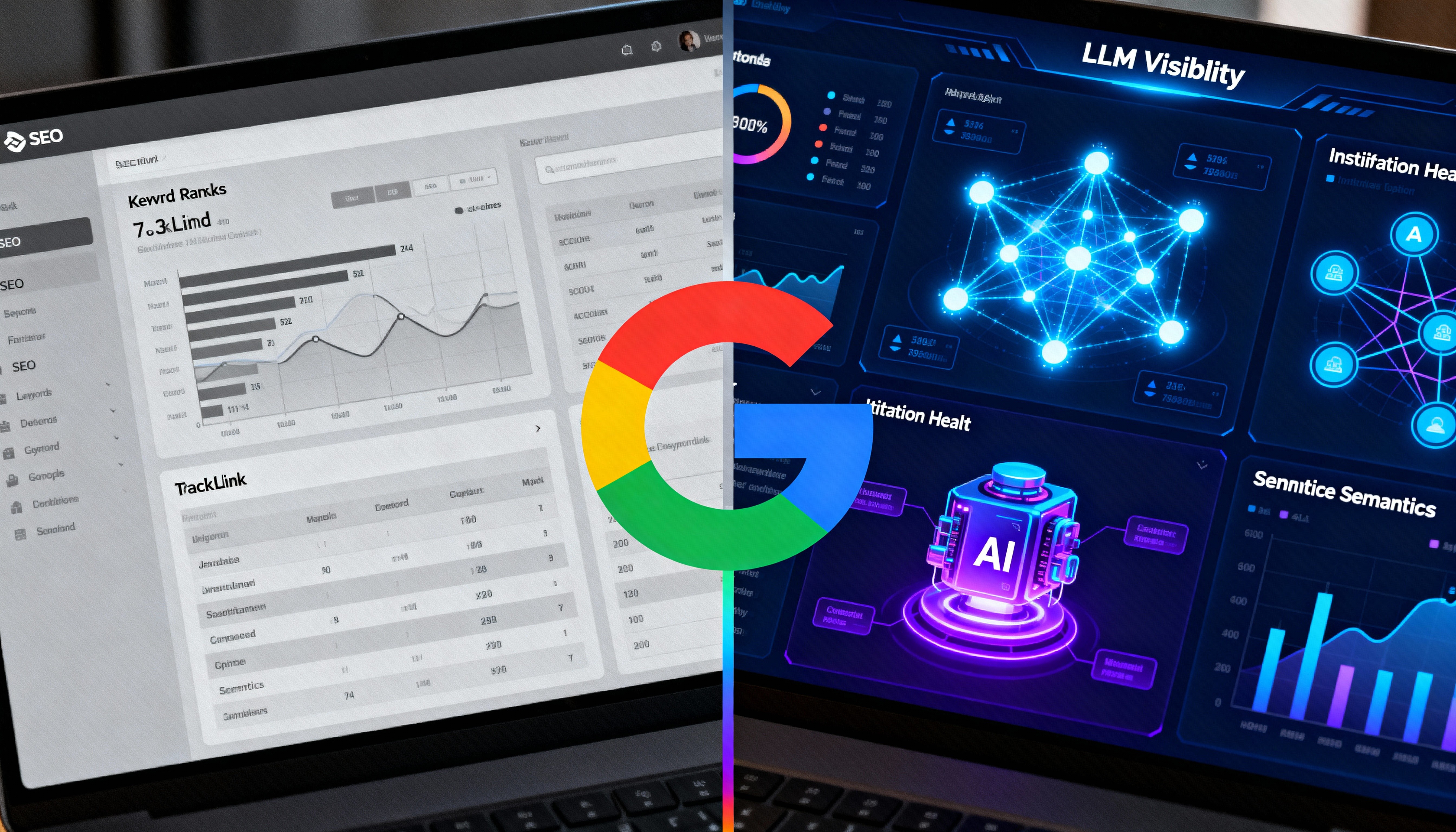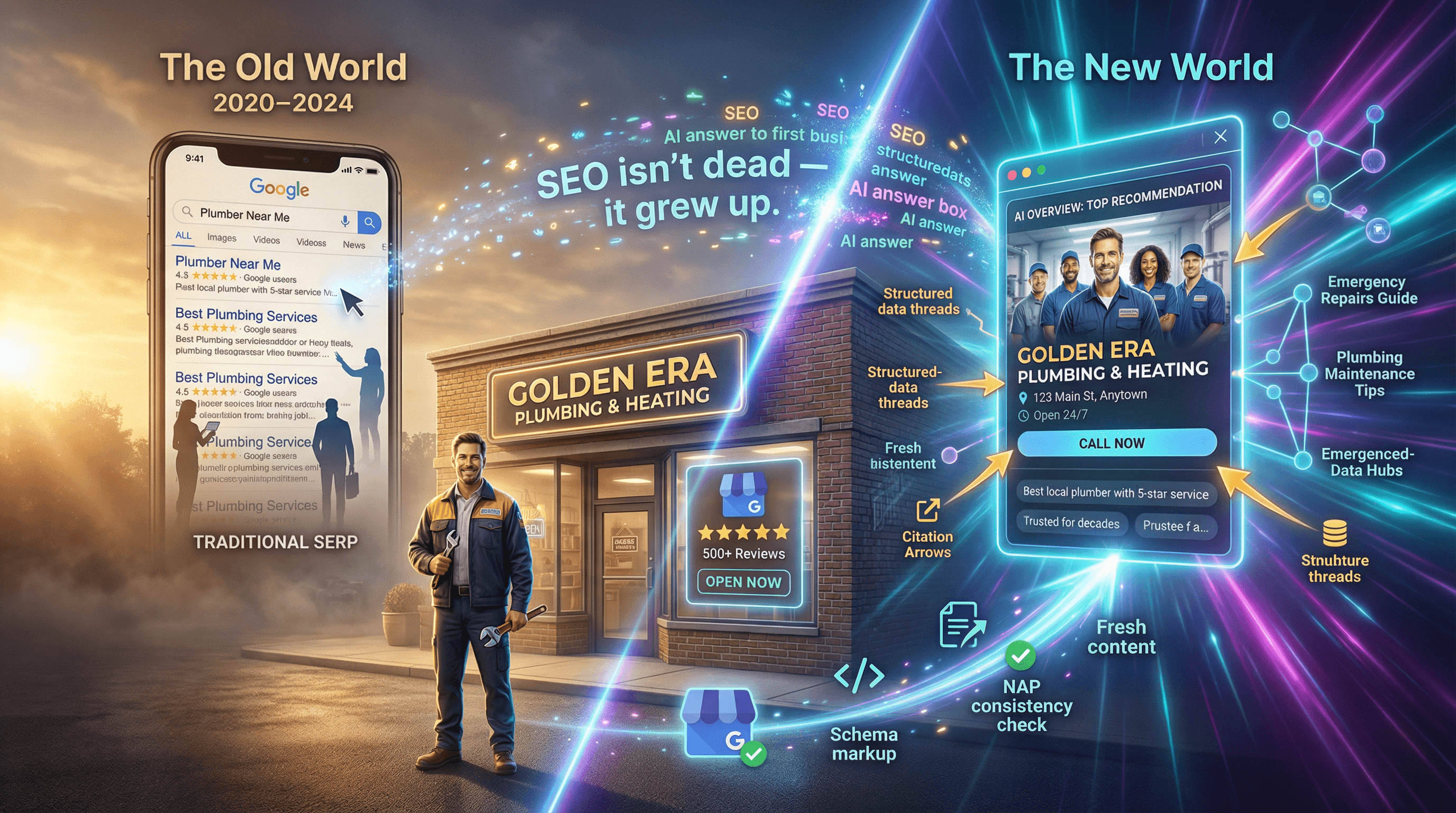Growth Partners
Discover how testing values drives sustainable entrepreneur success. Learn to be a growth partner by aligning business with ethics and building trust.
So, you want to build a business that lasts, right? It's not just about having a good idea or making a quick buck. It's about figuring out what actually matters to you and your customers. When you know your core values, you can make smarter choices. This helps you connect with people, stay strong when things get tough, and basically become the kind of business others want to work with. Think of it as building a solid foundation, not just a flashy storefront. It's about being a reliable partner in growth, for yourself and for everyone you interact with.
Key Takeaways
Understanding what drives people to choose sustainable options, especially in the luxury market, is key. It's often a mix of wanting to do good and wanting to look good.
Knowing your own core values helps you make better business decisions and attract people who believe in what you're doing.
When your business practices match your personal ethics, you build trust. This is super important for keeping customers and partners happy long-term.
Being a good Growth Partner means aligning with others who share your values, making your business stronger and more resilient.
Clearly communicating your values helps customers connect with your brand and builds loyalty, turning them into supporters.
Understanding the Power Dynamics of Sustainable Choices
It's easy to think that when people choose sustainable products, it's all about saving the planet. And sure, that's part of it. But there's a whole lot more going on under the surface, especially when we talk about fancy, high-end stuff. Turns out, how powerful someone feels can really mess with what they decide to buy.
The Influence of Perceived Power on Consumer Preferences
Think about it: when you feel like you've got a lot of control, a lot of say in things, you might not be as drawn to
Cultivating a Growth Partner Mindset in Entrepreneurship
Starting a business isn't just about having a good idea; it's about building something that lasts and contributes positively. This means shifting your perspective from just being a business owner to becoming a true growth partner. It’s about recognizing that your business doesn't exist in a vacuum. It interacts with customers, suppliers, employees, and the wider community. Thinking like a growth partner means considering how your business can help others grow, too.
Identifying Core Values for Long-Term Success
What really drives you and your business? It’s easy to get caught up in the day-to-day hustle, but taking time to figure out your core values is super important. These aren't just buzzwords; they're the guiding principles that will shape your decisions, especially when things get tough. Think about what you stand for, what you believe in, and what kind of impact you want to make. These values will be your compass.
Integrity: Being honest and transparent in all your dealings.
Innovation: Constantly looking for better ways to do things and solve problems.
Community: Contributing positively to the people and places around you.
Quality: Committing to excellence in your products or services.
Aligning Business Practices with Personal Ethics
This is where the rubber meets the road. Your business practices should reflect your personal ethics. If you value honesty, your marketing should be truthful. If you care about the environment, your operations should reflect that. It’s about making sure there’s no disconnect between what you say you believe and what you actually do. This consistency builds trust, which is like gold for any business. It’s not always easy, and sometimes it means making harder choices, but it’s worth it in the long run. You can find some great advice on building a solid business foundation in this entrepreneurial success roadmap.
When your business actions line up with your personal beliefs, you create a strong sense of purpose. This purpose is what will keep you going when challenges arise and will attract people who share your vision.
The Role of Values in Attracting Strategic Alliances
Think about who you want to work with. Other businesses, investors, or partners are more likely to join forces with you if they see that your values align with theirs. Shared values create a foundation for strong, lasting relationships. It’s like finding people who speak the same language. When you’re clear about your values, you can find partners who are not just looking for a quick win, but for a meaningful collaboration. This makes it easier to build a network of support that can help your business thrive.
For example, a company that prioritizes sustainability might seek out suppliers who also have strong environmental practices. This shared commitment makes the partnership smoother and more effective. It’s about building a team that’s on the same page, working towards a common goal.
Leveraging Values for Entrepreneurial Resilience
When things get tough in the business world, and believe me, they do, sticking to your core values isn't just a nice idea; it's a survival tactic. Think of your values as the bedrock of your company. They guide your decisions when the market is doing its own unpredictable dance. This steady hand helps you stay true to your mission, even when profits look shaky.
Navigating Market Shifts Through Value-Driven Decisions
Markets are always changing. One day everyone wants one thing, the next it's something totally different. If your business is just chasing trends, you'll be constantly playing catch-up. But if you're anchored by strong values, you can adapt without losing your way. For example, if your value is community support, and a new technology comes along that could hurt local businesses, your value-driven decision might be to stick with older, more community-friendly methods, or to find a way to integrate the new tech that also supports local folks. It's about making choices that feel right, not just profitable in the short term.
Building Trust and Credibility with Stakeholders
People, whether they're customers, employees, or investors, want to know they can count on you. When your actions consistently match your stated values, you build a reputation for being reliable. This isn't just about being honest; it's about being predictable in a good way. If you say you care about the environment, and you actually put that into practice – maybe by reducing waste or using sustainable materials – people notice. This builds a kind of trust that's hard to buy.
Here’s a quick look at how different stakeholders might see value-driven businesses:
Customers: They see a brand they can believe in, leading to repeat business.
Employees: They feel more connected to their work and are more likely to stay.
Investors: They see a stable, less risky investment with a clear long-term vision.
Suppliers: They appreciate a partner who is fair and consistent in their dealings.
The Impact of Values on Brand Reputation and Loyalty
Your brand's reputation is pretty much everything. If your values are clear and consistently shown, your brand starts to mean something specific to people. It's not just a logo; it's a promise. This can lead to customers who don't just buy from you once, but who become loyal fans. They might even defend your brand if someone says something negative. This kind of loyalty is gold, especially when times are tough. It means you have a built-in support system that goes beyond just the product itself.
When a business operates from a place of deeply held values, it creates a ripple effect. This internal compass doesn't just guide the founders; it shapes the company culture, influences every decision, and ultimately, communicates a consistent message to the outside world. This authenticity is what builds lasting connections and a resilient business that can weather storms.
The Psychological Underpinnings of Sustainable Consumption

Ever wonder why some people go out of their way to buy eco-friendly products, even when they cost a bit more? It's not just about saving the planet, though that's a big part of it. There's a whole lot going on in our heads when we make these choices.
The 'Warm Glow' Effect of Ethical Purchases
Think about that good feeling you get after doing something nice for someone else. It's kind of like that, but for your wallet. When you buy something that's made ethically or sustainably, you often feel a sense of personal satisfaction. It's like a little internal reward for doing the right thing. This "warm glow" isn't just a nice thought; studies show it actually motivates people to make these kinds of purchases more often. It’s a psychological boost that comes from knowing your money is supporting good practices.
Conspicuous Conservation and Social Signaling
Sometimes, buying green is also about showing off, in a way. This is called "conspicuous conservation." It's when people buy sustainable products not just because they care about the environment, but also to signal to others that they are responsible, caring, and perhaps even wealthy enough to afford these often pricier options. It’s a way to build a certain image or reputation within social circles. Think of someone driving an electric car or wearing a brand known for its ethical sourcing – it sends a message.
Here's a quick look at how this plays out:
Status Symbol: Sustainable luxury items can signal both environmental consciousness and social standing.
Reputation Building: Engaging in green behaviors can improve how others perceive you.
Social Norms: When sustainable choices become more common, people feel pressure to conform.
Addressing Consumer Skepticism Towards Green Claims
Let's be real, though. Not everyone buys into every green claim out there. There's a lot of skepticism. People have been burned before by companies making big promises about sustainability that turned out to be not quite true. This makes consumers wary. They want proof, not just pretty words on a label. Building trust is key, and it often means being transparent about where products come from and how they are made.
The challenge for businesses is to move beyond vague environmental statements. Consumers are increasingly savvy and demand concrete evidence of sustainable practices. Without this, skepticism can quickly erode any goodwill built around green initiatives, making genuine efforts seem disingenuous.
So, while the "warm glow" and social signaling are powerful motivators, they only work if consumers believe the claims behind the products. It's a balancing act between appealing to our inner desire to do good and our need to trust the information we're given.
From Personal Values to Business Strategy
So, you've got these ideas, these core beliefs about how things should be done, right? That's great. But how do you actually turn that into a business that not only survives but thrives? It’s about more than just having a good product or service. It’s about figuring out what truly drives you and then making sure your business reflects that. This is where your personal 'why' becomes your business's compass.
Defining Your Entrepreneurial 'Why'
Think about it. Why did you start this whole thing in the first place? Was it to solve a specific problem, to create something new, or maybe to make a difference in some way? Pinpointing this core motivation is key. It's not just a feel-good exercise; it's the bedrock of your business. Without a clear 'why,' it's easy to get lost when things get tough.
Here are a few questions to get you thinking:
What problem are you genuinely passionate about solving?
What impact do you want your business to have on the world, big or small?
What kind of legacy do you want to leave behind?
What values are non-negotiable for you, even if it means sacrificing some profit?
Integrating Values into Product Development
Once you know your 'why,' you need to weave it into what you actually make or do. This means looking at your products or services through the lens of your values. Are you committed to sustainability? Then that needs to show up in your materials, your manufacturing process, and even your packaging. If you value transparency, make sure your customers know where things come from and how they're made.
Consider this: a company that values community might develop products that encourage connection or donate a portion of profits to local initiatives. A business built on innovation might constantly be looking for new, better ways to serve its customers, always pushing the envelope.
Communicating Your Values Effectively to Customers
Having strong values is one thing, but people need to know about them. How you talk about your business matters. It’s not just about shouting about your features; it’s about sharing your story and what you stand for. This builds a connection with customers who share those same values. They're not just buying a product; they're supporting a mission.
Think about how you present yourself. Is it through your website's 'About Us' page, your social media posts, or even the way your customer service team interacts with people? Authenticity is key here. If you claim to value something, make sure your actions back it up. People can spot fakes a mile away, and that can really hurt your reputation.
Building a business on a foundation of personal values isn't just about doing good; it's about building something real and lasting. When your business's purpose aligns with your own, you create a powerful engine for growth and a brand that people can truly believe in. It's about creating something that matters, not just to you, but to the people you serve.
The Entrepreneur as a Growth Partner

Being an entrepreneur isn't just about building a business; it's about building relationships. When you approach your venture with a mindset of being a growth partner, you're not just looking out for yourself. You're thinking about how your business can help others grow, too. This means looking beyond immediate profits and considering the long-term impact on your customers, your team, and your community. It’s about creating a symbiotic relationship where everyone benefits from the success.
Fostering Collaboration Through Shared Values
Shared values are the bedrock of any strong partnership, and this is especially true in business. When you and your partners, employees, or even your customers are aligned on core principles, collaboration becomes much smoother. It’s like speaking the same language, but for ethics and goals. This alignment helps in making tough decisions, especially when things get complicated. It means everyone is pulling in the same direction, not just because they have to, but because they believe in the same mission.
Identify your non-negotiables: What ethical lines will you absolutely not cross?
Communicate openly: Regularly discuss values and how they translate into daily actions.
Seek alignment in others: When bringing on new team members or partners, look for people who genuinely share your core beliefs.
Build trust: Consistent action that reflects stated values is key to building lasting trust.
When your business operates on a foundation of shared values, it creates a powerful internal compass. This compass guides decisions, even in uncertain times, and helps maintain focus on what truly matters for long-term success and positive impact.
The Long-Term Benefits of Value Alignment
Sticking to your values might seem like a slower path sometimes, but the payoff is significant over time. Businesses that prioritize ethical practices and genuine relationships tend to build a stronger reputation. This isn't just about looking good; it translates into tangible benefits. Customers are more likely to stick with brands they trust, and employees are more engaged when they feel their work has meaning. It also makes it easier to attract like-minded investors and partners who are looking for more than just a quick return. Think of it as building a solid foundation for a house that will stand for generations, rather than a flimsy structure that might collapse in the first storm. This approach is central to systems change entrepreneurship, where the goal is to create lasting, positive shifts.
Becoming a Trusted Growth Partner in Your Industry
To truly become a trusted growth partner, you need to consistently demonstrate reliability and integrity. This means following through on promises, being transparent in your dealings, and always acting with the best interests of your partners and customers in mind. It's about being the kind of business that others want to work with, not just because of what you offer, but because of who you are. This reputation doesn't happen overnight; it's built through countless small actions and a steadfast commitment to your principles. When you achieve this, you become more than just a vendor or a service provider; you become an indispensable part of your industry's ecosystem, contributing to collective progress and success.
Wrapping It Up
So, what's the takeaway here? It turns out that how we feel about our own influence, our 'power,' really changes what we buy, especially when it comes to fancy stuff that's also good for the planet. When people feel like they don't have much control, they tend to lean towards sustainable luxury items. It seems like doing something good, something ethical, gives them a nice feeling, a sort of inner glow. Plus, buying these kinds of products still lets them show off a bit, which is a big part of why people like luxury in the first place. It’s not just about looking good; it’s about feeling good about the choices you make, even when you’re treating yourself. This shows that businesses can really tap into this by understanding these feelings. It’s not an either/or situation between being ethical and being desirable. You can actually do both, and that’s a pretty smart way to build a business that lasts.
Frequently Asked Questions
Why is understanding 'power' important when selling fancy, eco-friendly stuff?
When people feel like they don't have much power, they sometimes like buying nice things that are also good for the planet. It makes them feel good inside, like they're doing something nice. But when people feel powerful, they might not care as much about the eco-friendly part, just the fancy part. Knowing this helps businesses sell better.
How can businesses be like a 'growth partner' for others?
A growth partner is like a friend who helps you grow. For businesses, it means sharing the same important beliefs and working together. When companies have similar values, they can trust each other more and help each other succeed in the long run. It’s like being on the same team.
What does 'warm glow' mean when someone buys something green?
The 'warm glow' is a happy feeling people get when they do something good, like buying a product that helps the environment or people. It's like a little reward inside their head. This feeling can make them want to buy more eco-friendly things, even if they cost a bit more.
Can buying green stuff actually make you look cooler or more important?
Yes, sometimes! When people buy fancy things that are also good for the planet, it can show others that they care about important issues and have good taste. It's like showing off in a good way, saying 'I can afford nice things, and I also care about the world.' This is called 'conspicuous conservation'.
What's the difference between a company's 'why' and its products?
A company's 'why' is its main reason for existing, its core beliefs, and what it hopes to achieve beyond just making money. It's the big picture. The products are what they make and sell. For a business to be strong and last a long time, its products should match its 'why' and its values.
How can businesses get people to trust their 'green' claims?
It can be hard because some companies say they are green but aren't really. To build trust, businesses need to be honest and show proof. They should clearly explain what makes their products eco-friendly and be consistent. Being open about their efforts and showing real results helps people believe them.
























































































